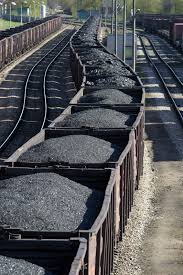 This article is a must read if you believe the excellent environmetnal blog Gristmill, which says that "overall this piece comes closer than anything I've ever seen in the national media to getting the big story right" on coal and climate change.
This article is a must read if you believe the excellent environmetnal blog Gristmill, which says that "overall this piece comes closer than anything I've ever seen in the national media to getting the big story right" on coal and climate change. According to the Times article, "utilities’ plans for new coal plants are being turned down left and right" across the country, with 83 plants in the United States either "voluntarily withdrawn or denied permits by state regulators" in the past 2 1/2 years. For those of you tuning in late to this story, the fundamental problem with coal is that - as a senior attorney for the Natural Resources Defense Council points out - it is "the dirtiest possible fuel." In addition:
With concerns over climate change intensifying, electricity generation from coal, once reliably cheap, looks increasingly expensive in the face of the all-but-certain prospect of regulations that would impose significant costs on companies that emit large amounts of carbon dioxide and other greenhouse gases.So, why not just get rid of coal altogether? David Roberts at Gristmill lays out three obstacles: 1) "The fear that that there's no alternative;" 2) "The fear of rising prices;" and 3) "Utility inertia." I would add a fourth factor, namely politicians who have been in the pocket of the fossil fuel and utility industries for so long that they can't find their way out without a map and a big helping hand.
The bottom line, though - notwithstanding Nobel Prize climate scientist George Will's objections (ha) - is that coal is one of the major contributors to climate change, not to mention destruction of more local environments due to heinous practices like mountaintop removal. Some day, preferably sooner rather than later, it's going to have to be phased out. According to the New York Times article, that day may already have come. It's about time.

